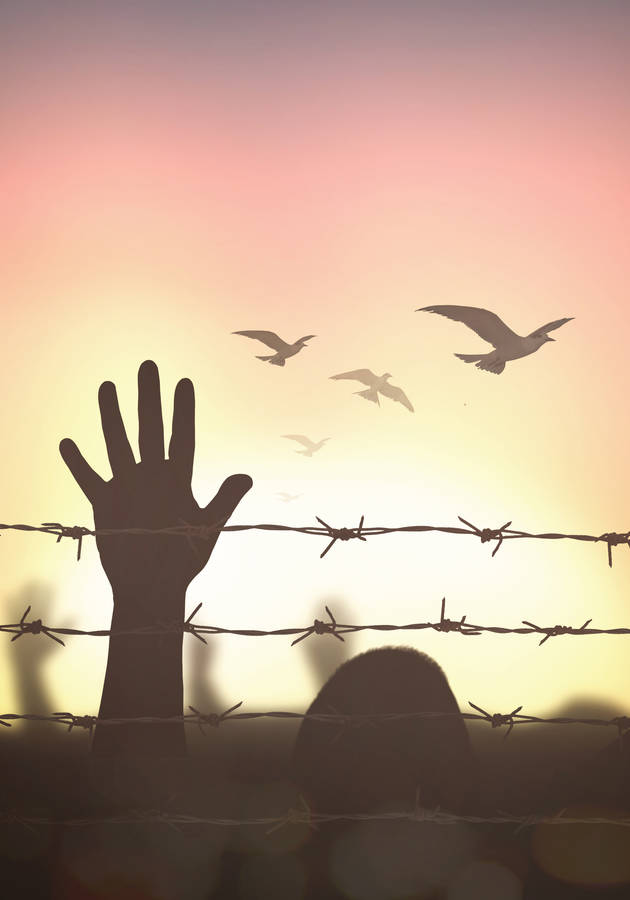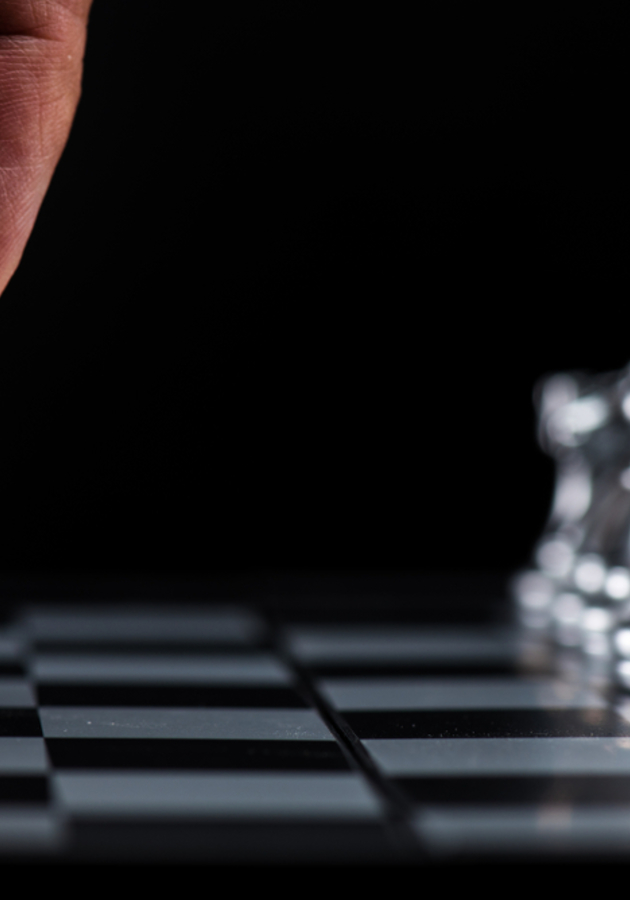Near the end of his life, Malcolm X went on a religious pilgrimage to Mecca. There, he experienced a profound epiphany: “My whole life had been a chronology of changes,” he remarked in a letter to his newly founded mosque in the United States and the press. Written with the help of essential collaborator Alex Haley, his autobiography is a spiritual conversion narrative that testifies to the veracity of this claim with power, honesty, and fierce individualism.
So, get ready to follow the chronology through six crucial changes and learn how Malcolm Little grew to become Malcolm X and how Malcolm X eventually turned into El-Hajj Malik El-Shabazz!
Malcolm Little, a “light-skinned negro”
Even before it began, Malcolm’s life was shrouded in violence: when his mother – Grenada-born Louise Helen Little – was pregnant with him, a party of hooded Ku Klux Klan riders galloped up to the family’s home in Omaha, Nebraska. They were looking for his father, Earl Little, a tall, imposing Baptist preacher and a lifelong admirer of Pan-African activist Marcus Garvey.
As Louise later told Malcolm, “the Klansmen shouted threats and warnings at her that [the family] had better get out of town because ‘the good Christian white people’ were not going to stand for [Earl] ‘spreading trouble’ among the ‘good’ Negroes of Omaha with the ‘back to Africa’ preachings of Garvey.” As a result, only a year after Malcolm’s birth (May 19, 1925), his family moved to Milwaukee, Wisconsin, and shortly after to Lansing, Michigan.
Unfortunately, they couldn’t escape the threats or the violence. One nightmarish night in 1929, a white supremacist group called The Black Legion set the Littles’ house on fire. Two years later, they severely beat and killed Malcolm’s father. Despite incriminating evidence, the case was ruled a streetcar accident by the police, and an insurance company refused to pay the policy claiming that Earl had actually committed suicide.
Left alone with eight children in the dire conditions of the Great Depression and continually harassed by social workers, Louise suffered a nervous breakdown and was committed to a state mental institution. At 13, Malcolm was sent to live with a white foster family in Lansing and attended the nearly all-white Mason Junior High School.
In retrospect, Malcolm finds a lot of similarities between the two experiences: there were constantly good, white people around him at both places, and he was well-liked by most of them, but only as an exception to the rule. To their eyes, unlike other black people, he was smart, handsome, and docile.
Inherited from a Grenadian white grandfather whom Malcolm refers to as a rapist, his passably light skin was also a factor. “I soon became accepted by them,” Malcolm remembers, “as a mascot, I know now.” This feeling only deepened when he told his English teacher that he wanted to become a lawyer. “A lawyer?” replied the teacher in surprise. “But that’s no realistic goal for a ni**er. Why don’t you plan on carpentry? People like you as a person – you’d get all kinds of work.” Malcolm dubs this discussion as the first major turning point of his life.
Homeboy: an epicure in a zoot suit
The second major turning point wouldn’t take long to happen: encouraged by his sister Ella, Malcolm left Lansing for Boston where, in the largely African American neighborhood Roxbury, he finally experienced “the sense of being a real part of a mass of [his] kind.” There, he stopped being Malcolm Little and quickly became “Homeboy,” a red-conked zoot-suited mainstay of local life.
Thanks to an accidental meeting with an aspiring saxophonist from Lansing nicknamed Shorty, Malcolm received a free pass to take a full part in the activities of the booming underground scene. While enjoying performances from Duke Ellington and the likes at the Roseland State Ballroom, Malcolm spent most of his time decadently, playing pool, gambling, drinking, smoking, using drugs. For income, he worked first as a shoeshiner and then as a soda fountain clerk.
One day, while at this second job, he met Laura, the only middle-class black girl who acted in any way friendly and natural to him. Laura really liked school, excelled in algebra, and planned to go to college. She also took a liking to Malcolm. Before long, he invited her to a dance at the Roseland.
At their second date, they emerged as stars of the dance floor, and Malcolm immediately attracted the attention of the white people, including a lovely woman named Sophia. “Now, at that time, in Roxbury, in any black ghetto in America, to have a white woman […] was – for the average black man, at least – a status symbol of the first order,” remembers Malcolm. “It's shameful to admit, but I had just about forgotten Laura.”
Laura forgot him as well and – unfortunately – all of her former habits. Once Malcolm introduced her to the underground, she lost her former self. Years later, he discovered that she became “a wreck of a woman, notorious around black Roxbury, in and out of jail.” “To have treated her as I did for a white woman made the blow doubly heavy,” he remarks with regret. Not that he treated Sophia better: he beat her frequently, and he couldn’t understand why she remained with him for the next several years.
Detroit Red’s downfall in Harlem
In 1943, at the age of 18, Malcolm moved to New York City’s Harlem neighborhood, where – in his own words – he turned into “one of the most depraved parasitical hustlers among New York’s eight million people.” The transformation was properly marked – with a new nickname. Just as once Lansing’s Malcolm Little had become Boston’s Homeboy, now Homeboy became Harlem’s Detroit Red – owing to his Michigan background and his red-conked hair.
At around this time, Malcolm was summoned by the draft board. Since, in those days, the only three things in the world that scared Malcolm were “jail, a job, and the Army,” he dedicated all of his energy to dodging the draft. He went there costumed like an actor, dressed in a “wild zoot suit” and “yellow knob-toe shoes,” his hair frizzled up into “a reddish bush of conk.” And he prepared quite a show for the Army psychiatrist, feigning paranoia and obsessive distrust until eventually whispering the following in the man’s ear: “Daddy-o, now you and me, we’re from up North here, so don't you tell nobody… I want to get sent down South. Organize them, negro soldiers, you dig? Steal us some guns, and kill us crackers!” He never heard from the Army anymore.
In Harlem, Malcolm met and befriended Sammy the Pimp and West Indian Archie, a gambler. Around them, violence became a way of life: he became engaged not only in pimping and gambling, but also in racketeering, drug dealing, and armed robberies. However, it didn’t take long for Malcolm to become unmanageable for his mentors and to start outshining them in wickedness and corruption.
In late 1945, while being pursued by just about every hustler and police officer in Harlem, Shorty came to take Malcolm back to Boston at the behest of Sammy the Pimp. “Many times since,” muses Malcolm, “I have thought about it, and what it really meant. In one sense, we were huddled in there, bonded together in seeking security and warmth and comfort from each other, and we didn’t know it. All of us – who might have probed space, or cured cancer, or built industries – were, instead, black victims of the white man’s American social system.”
Satan: an angry atheist in prison
Back in Boston, Malcolm’s sister Ella “couldn’t believe how atheist, how uncouth [Malcolm] had become.” But she could do nothing to change him: Malcolm had simply grown too reckless to care about anything. He wore his guns as he would later his neckties and spent money “as though it were going out of style.”
And money kept coming in abundance, since – despite being closely followed by a local black detective – he was regularly committing armed robberies with the help of Shorty and two white women: Sophia and her sister. “I had gotten to the point where I was walking on my own coffin,” he notes. The inevitable happened in 1946: he was arrested while picking up a stolen watch he had left at a jewelry store for repairs, and sent to serve a 10-year sentence at Charlestown State Prison.
Even in prison, Malcolm kept his notorious reputation from the streets, as an unbalanced man and a stubborn atheist. The other inmates even nicknamed him “Satan” because of his antireligious attitude, and the guards often sent him to solitary confinement on account of his improper conduct. Fortunately, one day, he became close to an older prisoner named Bimbi, the library’s best customer. “What fascinated me with him most of all,” says Malcolm, “was that he was the first man I had ever seen command total respect… with his words.”
To emulate him, Malcolm got hold of a dictionary and started copying it word by word, from “aardvark” to “zyzzyva.” He also started reading books voraciously on a variety of subjects: history, religion, literature, biology. He was especially interested in linguistics and word-building, but as he says, one can hardly mention anything he wasn’t curious about. “If I weren’t out here every day battling the white man,” he remarks, “I could spend the rest of my life reading, just satisfying my curiosity.”
Malcolm X, minister of the Nation of Islam
In addition to this intellectual awakening, in prison, Malcolm experienced religious awakening as well. At the insistence of several of his siblings who had already converted, he accepted Islam, “the only natural religion for the black man.” There was also another, more important reason for this abrupt spiritual transformation: the Honorable Elijah Muhammad, the leader of the recently founded politicoreligious movement, Nation of Islam.
Encouraged by one of his sisters, Malcolm developed correspondence with Muhammad while still in prison. Almost immediately after being paroled, in the spring of 1952, he visited Mosque Maryam, in Chicago, to hear him speak in person. Before too long, Muhammad became a father figure for Malcolm, who embraced the role as an advocate of his message and his “most faithful, hard-working minister.”
According to Muhammad, the first humans were black and lived in an Edenic paradise in Africa, in peaceful harmony with Allah. But then, 6,000 years ago, an evil scientist by the name of Yakub created a devilish, “bleached-out” race of people, and unleashed it upon Allah’s favorites. Ever since then, whites have been abusing blacks all around the world, selling them into slavery and brainwashing them into adopting their names and religious customs. Now it was time for the blacks to strike back.
Moved by Muhammad’s teachings, Malcolm changed his last name to “X” in reverence of the unknown African name he would have carried if his ancestors had remained in Africa instead of ending up as slaves in the United States. “For me,” he claims, “my ‘X’ replaced the white slavemaster name of ‘Little’ which some blue-eyed devil named Little had imposed upon my paternal forebears.”
It is under this fifth name that Malcolm X became famous and gained the fearsome reputation as “the angriest Negro in America.” Unlike Martin Luther King Jr., he didn’t believe in integration or peaceful tactics, but in segregation and passionate ferocity. He despised the “lulling and deluding effects” of King’s nonviolent philosophy, mockingly calling the March on Washington – The Farce on Washington. In Malcolm’s opinion, the whites had already taken everything from the blacks – so, why should they get away with it?
El-Hajj Malik El-Shabazz: redemption in Mecca
In 1955, during one of his lectures at the temple, Malcolm noticed a beautiful young woman named Betty. Assuredly misogynistic and wholeheartedly devoted to converting more people to the Nation of Islam, he had doubts about committing himself to a marriage, but eventually, he unromantically proposed to her – from a payphone at a gas station. The two married just two days later, in 1958. During the next seven years, Betty would give birth to six children – all of them daughters. “I guess, by now, I will say I love Betty,” Malcolm observes in his autobiography. “She’s the only woman I ever even thought about loving.”
As the number of Nation members continued to grow – largely thanks to Malcolm X’s popularity – Muhammad started getting jealous of him. He would routinely tear him apart behind his back, even as praising him to his face. But Malcolm kept his faith in the leader nevertheless. Then, one day, one of his assistants confessed to him that he had received an order by the Nation to kill him.
To make matters worse, several of Muhammad’s secretaries had come out with paternity suits against him. Becoming pregnant out of wedlock was strictly against the Nation’s moral code. It was for this reason that one of Malcolm’s brothers, Reginald, had been expelled from the organization. Back then, Malcolm stood by Muhammad; this made the shock of the discovery even more painful. “I could conceive death,” he says. “I couldn’t conceive betrayal.”
As a result, Malcolm broke off on his own and established a new organization in Harlem – Muslim Mosque, Inc. (MMI). But before even laying its social foundations, he decided to make a pilgrimage to the Islamic holy city of Mecca, the most hallowed of all Muslim religious obligations. There, he found a new self and adopted one final identity: El-Hajj Malik El-Shabazz. As El-Shabazz, Malcolm embraced a utopian vision of a multicultural “human family and human society.” He started advocating for a global brotherhood of all races and affiliations, maintaining that everyone who believes in such a society can be a friend of his. “Since I learned the truth in Mecca,” he would say in one of his final speeches, “my dearest friends have come to include all kinds!”
Final Notes
As he had predicted on several occasions, Malcolm X was killed soon after the publication of his autobiography, on February 21, 1965.
“I do not expect to live long enough to read this book in its finished form,” he told Haley in one of their last discussions relayed in the autobiography. “So, I want you to just watch and see if I’m not right in what I say: that the white man, in his press, is going to identify me with ‘hate.’ He will make use of me dead, as he has made use of me alive, as a convenient symbol of ‘hatred’ – and that will help him to escape facing the truth that all I have been doing is holding up a mirror to reflect, to show the history of unspeakable crimes that his race has committed against my race.”
So, don’t “make use” of Malcolm X. Read this exceptional, painful, inspirational, crucial book – and get to know him better before making any haste judgment.
12min Tip
Malcolm X’s transformation began when he started reading books. So, if you need to open your mind and your heart, start opening books first.





























